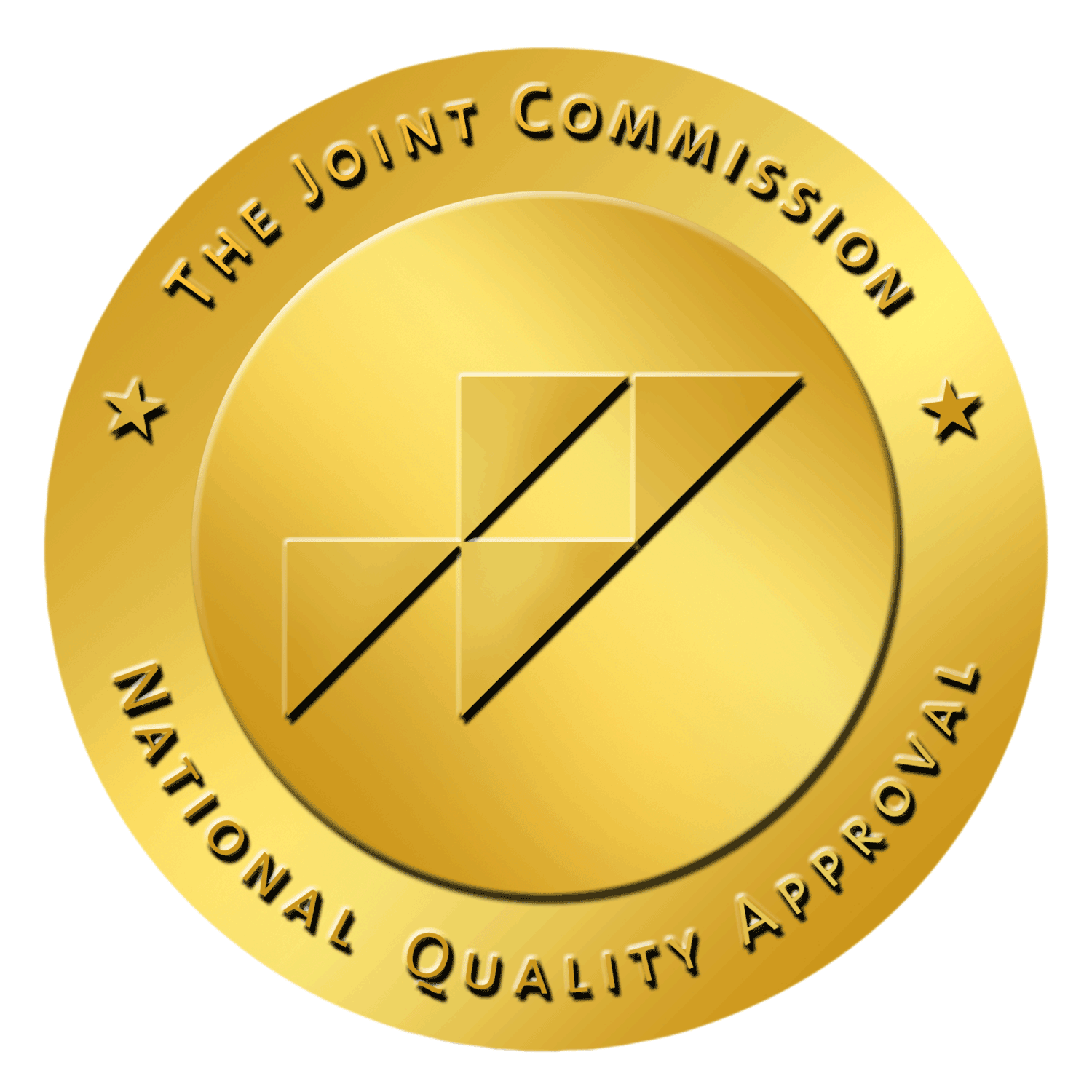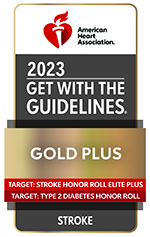Neurologists and many other experts work closely together, sharing their knowledge, experience and perspectives, collaborating as needed, to bring you the best care.
Nurses will take a leading role in your care. Our nurses have earned national recognition for excellence in nursing services, including the prestigious American Nurses Credentialing Center (ANCC) Magnet Recognition Program®. Many of our stroke unit and critical care nurses have advanced expertise, including professional certifications, in the treatment of individuals with stroke.
You'll benefit from the unique insights and expertise that each specialist brings to your care team. Get to know who's on your healthcare team. We'll serve you well, from admission to discharge and beyond. We want to help you stay healthy. That's why we offer comprehensive care, including follow-up and preventive care, as well as educational classes and events to encourage ongoing, proactive health and wellness for you, your family and our community.
Your neurological care team may include:
- Advanced neurovascular practitioner (ANVP) A certified nurse practitioner who offers specialized care to stroke patients to ensure they are receiving the best quality and evidenced-based care.
- Anesthesiologists – Doctors who administer medications to control pain and support vital functions during surgery.
- Cardiologists – Doctors who specialize in preventing, diagnosing and treating heart disease and other conditions that affect your heart and blood vessels.
- Case managers – Healthcare professionals who may be nurses, social workers, physical therapists or others who help people in challenging situations to find the help and services they need. They may create treatment or recovery plans, working with other health and human service providers.
- Certified neurovascular registered nurses (NVRN) – Nurses with advanced skills in stroke care, including specialized education and certification in the latest guidelines for stroke assessment, acute management and rehabilitation.
- Clinical laboratory scientists – Medical laboratory technologists and technicians who collect samples and perform tests to analyze body fluids, tissue and other substances.
- Dietitians – Professionals who provide nutritional assessment, meal planning and nutrition education.
- Emergency department nurses and physicians – Emergency room (ER) nurses and doctors who assist critically ill people who may be experiencing painful or life-threatening trauma. They are skilled at quickly assessing and stabilizing patients, and may direct discharge or referral as needed.
- Ear, nose, and throat (ENT) surgeons – Medical doctors, also known as otolaryngologists, who specialize in surgical and medical treatment of the ears, nose, and throat, and related head and neck areas. They often work with neurosurgeons in treating conditions such as skull base disorders, head and neck cancers, plastic surgery to correct deformities, and other disorders.
- Hospitalists – Doctors who specialize in hospital medicine and medical care for people who are hospitalized. This focus allows hospitalists to better understand and respond to various day-to-day needs during your hospital stay.
- Intensivists – Doctors who work in intensive care units (ICU) and specialize in directing and supervising critical care.
- Internists – Doctors who diagnose and provide nonsurgical treatment for a wide variety of diseases and injuries that affect internal organ systems. They treat conditions such as hypertension, diabetes, heart disease, brain conditions and other disorders.
- Neuropsychologists – Psychologists who specialize in evaluating and assisting patients recovering from strokes and brain damage. They may administer brain scans and other tests, and help people to cope with emotional challenges caused by or associated with injury or disease.
- Neuro-intensivists – Doctors who coordinate specialized intensive care following neurologic injury or neurosurgical procedures. They collaborate with neurosurgeons, neuroradiologists, neurologists, otolaryngologists, neuro-anesthesiologists, emergency room doctors and nurses, pharmacists and other care providers.
- Neuro-oncologists – Doctors who specializes in surgical and nonsurgical treatment of cancer, including brain and spine tumors.
- Neuro-otologists – Doctors who specialize in otolaryngology (ear, nose and throat), with further specialization in treating neurologic disorders of the ear and related structures.
- Neurointerventionists – Doctors who are specially trained in imaging and minimally invasive treatment of neurovascular diseases and disorders, such as stroke, aneurysms and brain tumors. Their background may include being a neurologist, neuroradiologist or neurosurgeon.
- Neurologists – Doctors who specialize in the treatment of nervous system disorders, including the brain, spinal cord and nerves.
- Neuroradiologists – Doctors who focus on imaging and interpretation of diagnostic imaging tests, as well as minimally invasive interventional procedures involving the use of X-ray, CT, ultrasound and MRI equipment. They specialize in conditions of the spine, neck, head and central nervous system.
- Neurosurgeons – Surgeons who provide surgical and nonsurgical management of disorders of the central and peripheral nervous systems, as well as pain management. Neurologic surgery encompasses the brain, meninges (membranes), skull and blood supply. Neurosurgeons also perform spine surgery for conditions such as spinal stenosis, herniated discs and disc degeneration.
- Nurses – Skilled specialists who take a leading role in your care. They may assist doctors with patient care and treatment delivery, in addition to helping patients and families cope with sickness, diseases and disorders. Many of our stroke unit and critical care nurses have advanced expertise, including professional certifications, in the treatment of individuals with stroke.
- Occupational therapists – Healthcare professionals who work as part of a rehabilitation team to help restore function and assist with daily living activities, including work, school, family, and community and leisure.
- Oncologists – Doctors who specialize in surgical and nonsurgical treatment of cancer.
- Pain management specialists – Healthcare professionals who help people suffering from chronic pain. They develop treatment plans to help relieve or manage pain, encouraging return to everyday living without the need for surgery or reliance on strong medication.
- Physiatrists – Doctors who specialize in physical and psychological rehabilitation after medical or surgical treatment.
- Physical therapists – Healthcare professionals who work as part of a rehabilitation team to help restore movement, muscle strength and joint function after injury or illness.
- Primary care doctors – Doctors who specialize in general internal medicine, family practice or another first-level-of-care area. Primary care doctors provide routine healthcare, including annual physical exams and immunizations, and treatment for acute medical conditions. They provide initial care for conditions that may become more serious or chronic. Your primary care doctor may diagnose and treat you initially and refer you to a specialist if needed.
- Radiation oncologists – Doctors who specialize in diagnosis as well as radiation therapy and oncology (cancer) treatment, including brain and spine tumors.
- Speech therapists – Specialists who assess and treat your ability to communicate, problem-solve and reason, and improve functions affected by stroke, injury or other neurologic conditions.
- Vascular surgeons – Surgeons who specialize in treating circulatory conditions in veins and arteries outside the heart.
Your Opinion Matters
Because your comfort and well-being are important to us, we encourage you to take an active part in your care and welcome your feedback. Nurse managers are available to speak with you, and you may also call or write the patient experience team at 650-962-5836 or patient_experience@elcaminohealth.org.

